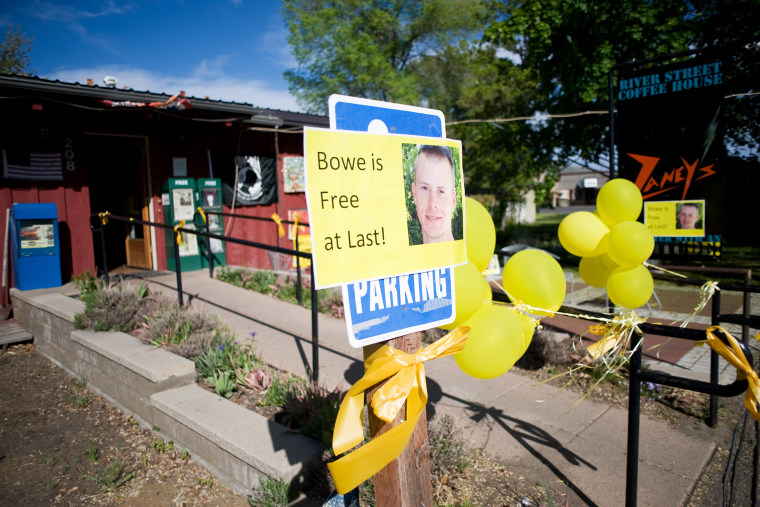The political discourse over the last few days has been rather surreal. It seemed hard to imagine that the release of an American prisoner of war would spark a fierce partisan backlash, but the announcement that Sgt. Bowe Bergdahl has been freed from his Taliban captors in Afghanistan seems to have done exactly that, with much of the right condemning the move.
Republican pollster Frank Luntz warned his allies, "Attacking the actions that led to the release of Sgt. Bowe Bergdahl is a surefire way to lose in 2014," but so far, conservatives have ignored the suggestion.
President Obama, in Europe this week, spoke to reporters while in Poland this morning and responded to the burgeoning controversy.
"The United States has always had a pretty sacred rule and that is we don't leave our men or women in uniform behind," he said. "We have consulted with Congress for quite some time about the possibility that we might need to execute a prisoner exchange to recover Sgt. Bergdahl." [...] "I wouldn't be doing it if I thought it was detrimental to our national security," he said. "We will be in a position to go after them if they are engaging in activity that threatens our defenses."
There have been multiple reports that Bergdahl may have been a deserter at the time of his capture. And though we don't yet have all of the details about what transpired, the president made clear that some of those details aren't quite relevant to the underlying principle.
"Let me just make a simple point here: regardless of the circumstances, whatever those circumstances may turn out to be, we still get an American soldier back if he's held in captivity. Period. Full stop. We don't condition that," Obama said.
I'm not sure why so many on the right find this hard to understand.
The United States prioritizes the return of American POWs. It's just what we do. What if the troops were captured due to their own negligence? It doesn't matter. What if they were taken prisoner as a result of incompetence? It doesn't matter. What if they gave up their post? It doesn't matter.
Even by the standards of our contemporary discourse, the past few days have been hard to believe. U.S. officials secured the release of an American prisoner of war and for much of the right, the first instinct was to condemn the president. The second instinct was to condemn the prisoner. And as yesterday unfolded, the third instinct was to go after the prisoner's dad.
I don't expect much from the far-right, but this is surprising.
Rep. Buck McKeon (R-Calif.) and Sen. James Inhofe (R-Okla.), the top Republicans on the House and Senate Armed Services Committees, said in a joint statement that the prisoner swap that led to Bergdahl's release "may have" adverse consequences and could put U.S. forces "at even greater risk."
It's difficult to say with certainty whether their warnings have merit. But Glenn Thrush asked a good question on Twitter overnight: what endangered the U.S. homeland more: a prisoner swap or invading Muslim country based on fake intelligence resulting in tens of thousands of deaths?
Predicting what U.S. foreign policies "may have" adverse consequences and/or could put U.S. forces "at even greater risk" is tricky, but if we're making a list, I can think of a few things that would come above "prisoner swaps."
